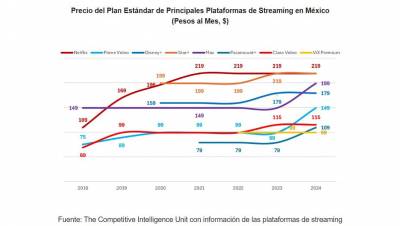TV & VIDEO: Why is audiovisual training important to you?
School allows one to know what one's own language is. Starting directly in the middle does not give the opportunity to experiment. (Brazil, Tula). It is much easier to start training in a school than to go directly to the professional world, you do not have the pressure of the industry behind you and you can find your own way. (Venezuela, Daniel Vargas).
Cinema is an art, but it seems to me that it has a technique and rules that must be known in order to later be able to be a creative on these parameters. I think there are concepts that are common to all, conventions that exist between the director, the cinema and the spectator, which must be known and managed. (Argentina, Lorena Muñoz). Many times you want to transmit something, but they are very things of one and it will depend on the training and experiences to be able to transmit it to others, this is a culture and if to say something, I want a certain scene to look sad, probably illuminate that with a cold light and so the viewer will see and feel the emotion that is wanted provoke. (Chile, Eva Gómez). It is important to learn where to put a camera, why on one side it says something and why on another side it says something else. In addition, the experience of sharing with other people, looking at how you work, being in contact with the audiovisual and seeing what has been done also helps you learn. (Chile, Matías del Campo). The truth is that it does take a long time to do this work without training. The school takes you to a more direct one towards what is a film team, brings you closer to creative and directing work; but otherwise and in other cases one can learn very quickly what it is to work in the industry, that is immediate, in a couple of shootings, what you will never have like this is academic mastery, knowing what it is about to be a film linguist, For example. (Bolivia, Roberto Lanza). Working you can learn the technique, but it is not easy to enter the medium. In addition, in the case of Chile, until the 70s or 80s there were no training schools in cinema, then you entered the medium and were an amateur, but today it is required to have training. (Chile. Guillermo Guzzoni Cox). Maybe you can work without having trained, but if you want to refine the technique and aesthetically you want to get good results it is good to train. (Spain, Amalia González). Although there are many people who have an innate talent, I believe that it will always be necessary to become a school. (Honduras, Tulio Mateo)
It is important to be aware of the media because of the power it wields over society. I believe that learning to produce audiovisual and be part of the medium is learning about what happens in the world and its movement. (Mexico, Tania Villarreal)
I believe that in 15 years there will no longer be film schools in the world because the new techniques and the new way of making cinema will make the education system cease to exist. It is becoming easier for a person to have their own digital camera and editing equipment at home and maybe we will all become filmmakers because definitely, the costs go down and unfortunately, education today is very expensive. (Sweden, Patrik Axén)
TV&V: How do you see the image world today?
Audiovisual media are being revolutionized by computers and the Internet, because although before there were many channels and information reached many countries, now there are more possibilities of distribution and that allows anyone to produce what they want. (Mexico, Tania Villarreal)
The magic of cinema is being lost a bit, but the positive part and what I like is that the process is more direct now between creator and receiver, without going through so many filters of interested producers in large markets. There's more freedom to make a film of your own, thanks in part to the Internet. (Venezuela, Daniel Vargas)
It seems to me that the Latin American industry is very fragile and looks more outward than inward. It's incredible but many times you have to go outside so that the people of the country of origin respect and recognize their artists. All this has to do, I think that there is no audiovisual education, it is not something massive and the main problem is that nobody wants to look in the mirror. (Brazil, Tula)
I think that in Latin America we need to make films and discover our identity, there is an aesthetic that makes our cinema recognizable, but I do not think there is a linguistic identity. We should focus on creating young Latino filmmakers and encourage filmmaking within the social needs of our countries. (Bolivia, Roberto Lanza).
There is no identity, authenticity, everything is done on molds, supposedly this modern lifestyle is a system that values individuality, but it is a lie, "everyone is the same". For example, what happens with Music Television (MTV), this space blocked any way of expressing itself or trying to experiment because people pigeonhole it once and for all in the MTV format, that became a stereotype. (Brazil, Celio Ferrero).
I believe that cinema, audiovisual, video clip, all that has a very important boom, everything is based on the image. The audiovisual is the support for political campaigns, commerce, etc. I think the image is tending to be faster and faster, sensationalist, and the depth of the image is not so important but how shocking, fast and fleeting it can be. (Chile. Guillermo Guzzoni Cox).
TV&V: How is the industry in your countries?
There is a problem of identity, something is missing that moves creation. We are a country that looks too far out. In Chile, something like 5 films are made annually, this year it is precisely expected that double will be made, which is still quite little, but it is already a considerable base. (Chile, Matías del Campo). In reality it is that Chilean cinema is very local, there are very few things that can cross borders, perhaps because in one way or another we are very censored, only recently is that this has been changing. (Chile, Eva Gomez)
In Argentina I see cinema quite badly, although there is a great enthusiasm of young people to do; what's happening is that there's really no film industry. The credits given by the State, which is the only way people can make movies, are very high credits, few and are given for convenience, although at the moment it is changing thanks to the new government.
On the other hand, I also think that since there are so many young people making films, there is a new neorealist tendency, with very real current problems and a cinema of denunciation. (Argentina, Lorena Muñoz)
In Honduras cinema is still very incipient, there are some small attempts so far to want to do something in fiction and documentary, but it is still a very primitive stage. It is complicated because still making films is still very elitist and a lot of money and infrastructure is needed in each country. (Honduras, Tulio Mateo)
In Bolivia, for example, more than 70% of the population is indigenous and that makes a big difference, the truth is that even when the media are changing, I can find no other way to massify information in my country than audiovisual. (Bolivia, Roberto Lanza)
In Sweden we have a certain film industry, supported by the Swedish Film Institute. It is incredible because now they have increased the investment to 50 million dollars for audiovisual production and distribution and about 20 films are being made annually. (Sweden, Patrik axés)
In Spain the attention for the cinema is rising a lot, suddenly all the organisms, even restaurants or places that have nothing to do with it are supporting Spanish cinema. It is very costumbrista and what we lack is science fiction, but now we are a little encouraged by everything that has been recognized in Hollywood with Banderas, Penelope and Almodovar, among others. (Spain, Naikari Díaz).
Actually, in Mexico the quality of the image and stories has improved thanks to the competition that exists between the two television channels (Televisa and Televisión Azteca), in addition, greater freedom of expression is felt. On the other hand, our cinema is going through a kind of revolution because video is opening up with more possibilities, but even so, cinema prevails as an art, in addition, it has opened up and has transcended intellectual circles to be also of the students, of ordinary people and individuals who have money to contribute to the productions. (Mexico, Tania Villarreal)
In Venezuela there is currently like a resurgence, quite a few young filmmakers with first films, there is an attempt and I think the thing may be about to explode. (Venezuela, Daniel Vargas)
TV&V: How do they see the future?
I have a rather fatalistic view. The audiovisual is going to get much more into our lives, I do not like its interference at all; all this thanks to the evolution of digital video and the Internet, which are opening unsuspected borders. (Basque Country, Amalia González).
The revolutions that are currently in the video are motivating, because the demand for audiovisual material is going to be greater and this will cause that there are more opportunities to do things and there will be more work. On the other hand, there are the risks that excessive demand makes one more than fighting because people see it, but you have to start being in there and value the positive aspects more. (Honduras, Tulio Mateo)
Cinema as a film support, I think that unfortunately it has little time left to live, despite the fact that even today the video is far from having its quality and definition. Things are going there, and the costs of video are always going to be much cheaper than those of cinema. Maybe I'm a bit "old-fashioned, but I think that the video, although it can be very good, takes a little bit of mysticism out of the subject. (Chile, Matías del Campo)
I think soon what's going to matter is marketing and distribution. I think we're going to have so much information, so many hundreds of TV channels. that what will matter will be to reach the public because with the audiovisual noise that is going to be created it will be very difficult to be heard. (Sweden, Patrik Axés).
The problem I see is basically of effective distribution channels, since in Latin America there are none, that is, that our audiovisual future of exhibition is more possible in Europe or in the Latin part of the United States than in our own countries, that's why I'm quite pessimistic. In addition, we are very accustomed to American mass culture and it seems to me that people do not feel like seeing anything other than that, unfortunately. (Venezuela, Daniel Vargas).
I see a good future, cinema I see it more and more like video, I mean, as a movement that revolutionizes, for example the experience of Dogma 95 where they film in digital and then expand to 35 mm. This cinema, in addition, has its own aesthetic; you can see the lights, the microphone, etc.( Argentina, Lorena Muñoz)
Aesthetically, cinema is changing a lot, it is more hermetic, it is being skewed and its borders are gradually shrinking. What can be serious is that the technique of cinema as a 35-millimeter film is no longer made and that digital cinema enters. Now that if that goes against cinema, I don't know, because for example people who made silent films were against sound cinema and said that this was no longer cinema, but today we all know that this is the cinema that exists. (Chile. William Guzzoni Cox)
TV&V: What is your challenge?
I would like to live on what I love most: cinema, and at the same time, I would like to change the world, I do not want to be part of the problem, I want to do important things for the vast majority of peoples. (Sweden, Patrik axés)
My challenge as a woman who aspires to be a film-photographer is to perfect the technique, find my own way of telling things and manage to infiltrate a world that is more of men. But above all, never lose that magic that cinema has and always enjoy my work. (Mexico, Tania Villarreal)
What I intend is to set up a production company and venture, not limit myself to cinema, which is everyone's aspiration, but it is difficult to pretend that it is the first thing you do, to do everything. (Honduras, Tulio Mateo)
I want to create a great working group to make Latin American cinema. (Brazil, Tula)
Making films, I want to tell stories. My way of expressing it is photography and I think the contribution I can make goes that way. (Chile, Matías del Campo)
Getting to tell something that makes you cry, transmit the emotion that I have felt many times watching movies, that is my dream. (Spain, Naikari Díaz)
I want to make films in Latin America. In spite of everything, you have to fight and find the mechanisms. Do it with your teeth but do it. (Venezuela, Daniel Vargas)
I would very much like to direct documentaries in an entertaining way. I want to tell simple, beautiful things and that the world and my country realize the beauty we have. (Chile, Eva Gomez)
Making films in Bolivia, this is a great challenge even if it is not believed... I have a lot of things to do and say. Even if people don't like to look in the mirror, I think it's necessary. (Bolivia, Roberto Lanza)
I do not aspire to direct or to be the most recognized, I only aspire to enjoy my work and to be able to experiment with other arts and audiovisual. (Basque Country, Amalia González)
I want to make films, make a living from that and do things in my country, because I feel that in Chile there are many more opportunities than in other countries. Chile is a young country cinematically and also creatively, and that must be taken advantage of. (Chile. William Guzzoni Cox)
To be able to have a sum of money that allows me to live normally and to be able to dedicate myself to the cinema, to live from writing and directing. I really like melodrama and also social stories, since I think that cinema is a tool to denounce, it is a very popular art that reaches many people and serves to raise awareness. (Argentina, Lorena Muñoz)
























Leave your comment